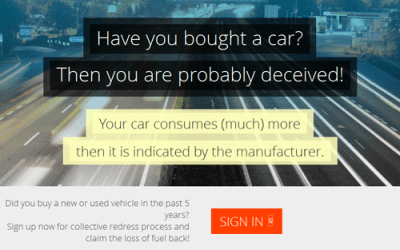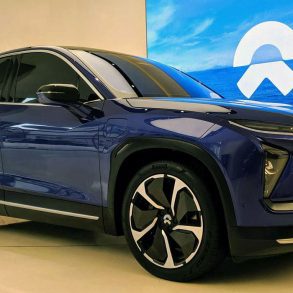A few weeks ago I wrote an article about the “Fuel-loss Foundation” in The Netherlands who had sued the Dutch Toyota importer for overstating the fuel economy claims of its vehicles, most notably the gasoline-electric hybrid vehicles. I had predicted their lawsuit would not be successful for two reasons: first and foremost because Toyota is  simply following the European guidelines for fuel economy statements, and secondly because the only reason the lawsuit was aimed at Toyota specifically is to set them as an example, as the brand is the largest producer and seller of hybrid vehicles, the type of cars that showed the highest deviation between theoretical fuel economy and actual fuel economy.
simply following the European guidelines for fuel economy statements, and secondly because the only reason the lawsuit was aimed at Toyota specifically is to set them as an example, as the brand is the largest producer and seller of hybrid vehicles, the type of cars that showed the highest deviation between theoretical fuel economy and actual fuel economy.
Nearly every car reviewed by the foundation was less fuel efficient than its manufacturer claims, which should be an indication that there is more likely to be a discrepancy between the European test cycle and the real-world driving conditions than this being a result of deceptive behavior by Toyota.
 The court agreed with this, and has cleared the Toyota importer of all charges. According to the judge “the European test cycle has been developed to allow consumers to compare the fuel economy of cars against each other, based on equal measuring conditions.” So what the judge is telling us, and what most of us already know, is that the European fuel economy claims for new cars are less of an exact figure to help consumers calculate their expected fuel costs than a comparison tool to see which car is more fuel efficient than the other.
The court agreed with this, and has cleared the Toyota importer of all charges. According to the judge “the European test cycle has been developed to allow consumers to compare the fuel economy of cars against each other, based on equal measuring conditions.” So what the judge is telling us, and what most of us already know, is that the European fuel economy claims for new cars are less of an exact figure to help consumers calculate their expected fuel costs than a comparison tool to see which car is more fuel efficient than the other.
However, as some major European countries have started giving buyers tax breaks and other incentives on fuel efficient cars (based on their theoretical fuel economy), it has become increasingly important to do well at this particular test cycle. As a result, manufacturers have started developing their cars to do exceptionally well in this test cycle, which may explain the increased discrepancies between the test cycle results and the actual fuel economy for consumers. Suspected manipulations include disconnecting the alternator and using special lubricants during the test cycle.

 Hybrids have an advantage in the test cycle as well, thanks to their standard stop&start mode and the slow acceleration in the test, which doesn’t require the internal combustion engine to deliver extra power to the electric motor.
Hybrids have an advantage in the test cycle as well, thanks to their standard stop&start mode and the slow acceleration in the test, which doesn’t require the internal combustion engine to deliver extra power to the electric motor.
Considering this, even if Toyota wanted to be more Catholic than the Pope, it is prohibited by law to publish any other fuel economy ratings than those of the New European Driving Cycle. The court therefore dismissed the charges of the foundation, as the Japanese brand has strictly followed European regulations.
The Fuel Loss Foundation has not published how many people have paid up to € 99,- to be included in the class-action lawsuit, but they remain confident in their claim that new-car buyers are being deceived by manufacturers and they are still considering further steps in their quest for compensation of the “lost fuel”.









